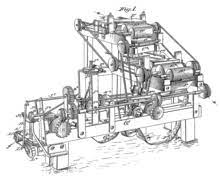The Evolution of Machines: From Invention to Innovation
Throughout history, machines have played a pivotal role in shaping the way we live, work, and interact with the world around us. From simple tools crafted by early humans to complex artificial intelligence systems of today, the evolution of machines has been nothing short of remarkable.
One of the earliest forms of machines can be traced back to the invention of the wheel, which revolutionized transportation and enabled humans to travel greater distances with ease. As civilizations progressed, so did the complexity and functionality of machines.
The Industrial Revolution marked a significant turning point in machine development, with steam engines and mechanized factories paving the way for mass production and rapid technological advancement. The introduction of electricity further accelerated machine innovation, leading to the creation of telecommunication devices, household appliances, and more.
Fast forward to the present day, and we find ourselves on the cusp of a new era – one driven by artificial intelligence and automation. Machines are no longer limited to physical tasks; they now possess the ability to learn, adapt, and make decisions independently.
From self-driving cars to smart home devices, machines are becoming increasingly integrated into our daily lives, offering convenience, efficiency, and new possibilities. However, this rapid advancement also raises questions about ethics, privacy, and the impact on jobs and society as a whole.
As we continue to push the boundaries of what machines can achieve, it is essential that we approach their development with careful consideration and foresight. By harnessing the power of technology responsibly and ethically, we can ensure that machines remain tools for progress rather than sources of division or harm.
In conclusion, machines have come a long way since their humble beginnings as simple tools. Their evolution reflects our own journey as a species – one marked by innovation, ingenuity, and a relentless pursuit of progress. As we look towards the future, let us embrace this ever-changing landscape of technology with curiosity and caution.
Understanding Machines: Definitions, Synonyms, and Key Concepts
- What is the definition of a machine?
- What is the synonym of machine?
- What do you mean of machine?
- What is a mechane?
- What is a machine short answer?
What is the definition of a machine?
A machine is defined as a mechanical or electrical device that performs a specific task by utilizing energy to produce a desired output. Machines are designed to simplify work, increase efficiency, and automate processes that would otherwise require human effort. From simple tools like levers and pulleys to complex systems such as computers and robots, machines come in various forms and serve a wide range of functions across different industries. The fundamental principle behind a machine is its ability to transform input energy into useful work, making it an essential component of modern technology and everyday life.
What is the synonym of machine?
A common synonym for the term “machine” is “apparatus.” In various contexts, both words are used interchangeably to refer to mechanical devices or equipment designed to perform specific tasks efficiently. Whether describing a complex piece of industrial machinery or a simple household appliance, the synonym “apparatus” effectively conveys the idea of a mechanical system or device that aids in carrying out functions or operations.
What do you mean of machine?
A machine is a mechanical or electrical device designed to perform a specific task or function, typically with greater efficiency and precision than human effort alone. Machines come in various forms, from simple tools like levers and pulleys to complex systems such as computers and robots. They play a crucial role in modern society, automating processes, increasing productivity, and expanding the capabilities of human labor. Essentially, a machine is a man-made invention that harnesses energy to transform input into output, serving as a cornerstone of technological advancement and innovation across industries.
What is a mechane?
The term “mechane” refers to a simple machine or device that aids in performing a specific task or function. In the realm of mechanics, a mechane typically involves a mechanical contrivance designed to make work easier by leveraging principles of physics and engineering. These machines can range from basic tools like levers and pulleys to more complex systems such as engines and robots. Understanding the concept of mechane is fundamental to grasping the foundational principles behind various mechanical inventions and innovations that have shaped the modern world.
What is a machine short answer?
A machine, in short, is a device that uses energy to perform a specific task or function. Machines are designed to simplify work, increase efficiency, and accomplish tasks that would be difficult or impossible for humans to do alone. They come in various forms and sizes, from simple tools like levers and pulleys to complex systems such as computers and robots. Essentially, machines are the building blocks of modern technology, playing a crucial role in shaping the world we live in today.

